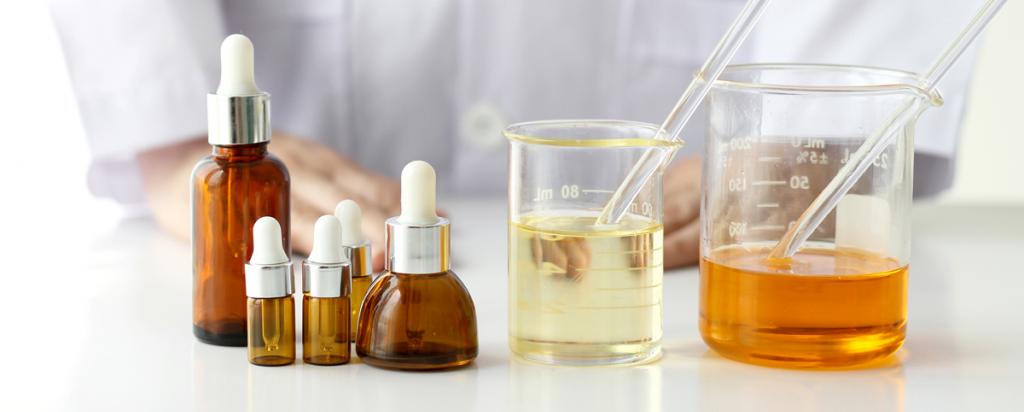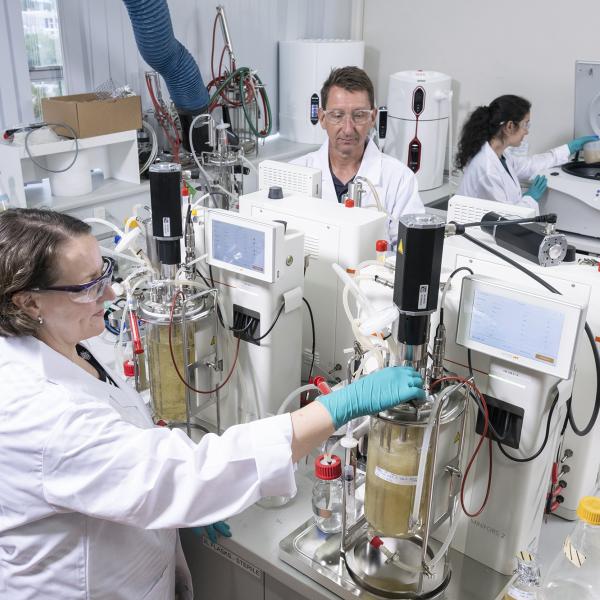

Published on the 29th August 2019 by ANSTO Staff
The Australian Society of Cosmetic Chemists has awarded Dr Tamim Darwish an award for the best technical paper at their annual conference in Perth in early May.

Darwish, Manager of Operations at the National Deuteration Facility, submitted a paper and delivered a presentation on the potential for the cosmetics industry to use deuterated materials to investigate the relationship between structure and function in cosmetic ingredients and beauty products and for quality control purposes.
When applied in studies using neutrons, infrared microscopy and other techniques, the position, structure, interactions and dynamics of the individual components of complex compounds, such pharmaceuticals and bio-technological materials, can be highlighted by deuteration.
All or some of the hydrogen atoms are replaced by deuterium, the stable heavier isotope of hydrogen, in the process of deuteration.
Darwish stresses that testing using deuteration and neutron techniques could benefit the cosmetics industry, which is highly constrained by the requirements of consumers around testing.
“Consumers don’t want products tested on animals, which restricts the mechanisms that can be used to characterise materials. An alternative could be the use of skin model membranes and deuterated materials with neutrons and other imaging techniques to look at interactions of chemicals with lipids and other skin components, ” said Darwish.
In addition and in a separate approach, deuteration, can be used to enhance the properties of products. It can slow the rate of oxidation and the destruction of materials, improve the biological stability of molecules in living systems, alter bond strength favourably, or be used to tune molecular interactions.
“A lot of lipids and skin cells are affected by oxidation. Using deuterated lipid molecules to reinforce skin cells, could be of interest for beauty products,” said Darwish.
Blocking the site of metabolism by using deuterium to improve therapeutic benefit has been attracting worldwide interest following approval of the first deuterated drug by the Food and Drug Administration in the US in 2017.
“Although the advantages of deuteration and using deuterium have recently been recognised by the pharmaceutical industry, the area is relatively untapped for the cosmetic and beauty products sector,” said Darwish.
“There is a misperception that deuterium is just used in nuclear reactors. Deuterium, or heavy water, is naturally abundant. The human body naturally contains deuterium equivalent to about five millilitres of heavy water, which is harmless.”
Deuteration could also be applied for quality control measures, because it can provide information about the distribution of ingredients and consistency.
“Building on our ability to produce deuterated biopolymers, investigators have had success using deuteration and synchrotron infrared microspectroscopy to determine different phases of individual polymers within a mixture,” said Darwish.
“The same approach could be used to study phase separation and aggregation of materials in colloidal mixtures, such as creams. “
“Although it is a niche area at this time, we anticipate growing interest,” said Darwish.
Biological and chemical deuteration has been used to study thin film nanotech devices, food lipid digestion, biopolymers and biotechnology, drug delivery, structural biology, among others.
The National Deuteration Facility is the only facility of its type in the Southern Hemisphere. It is partially funded by the National Research Infrastructure for Australia initiative.
For more information


